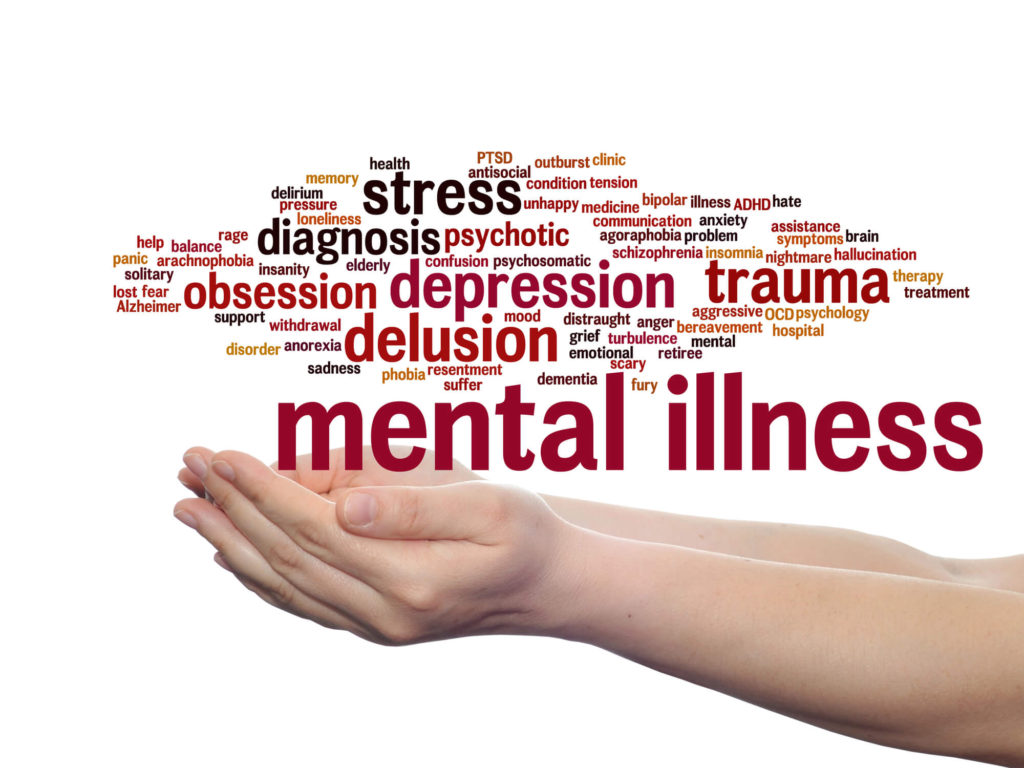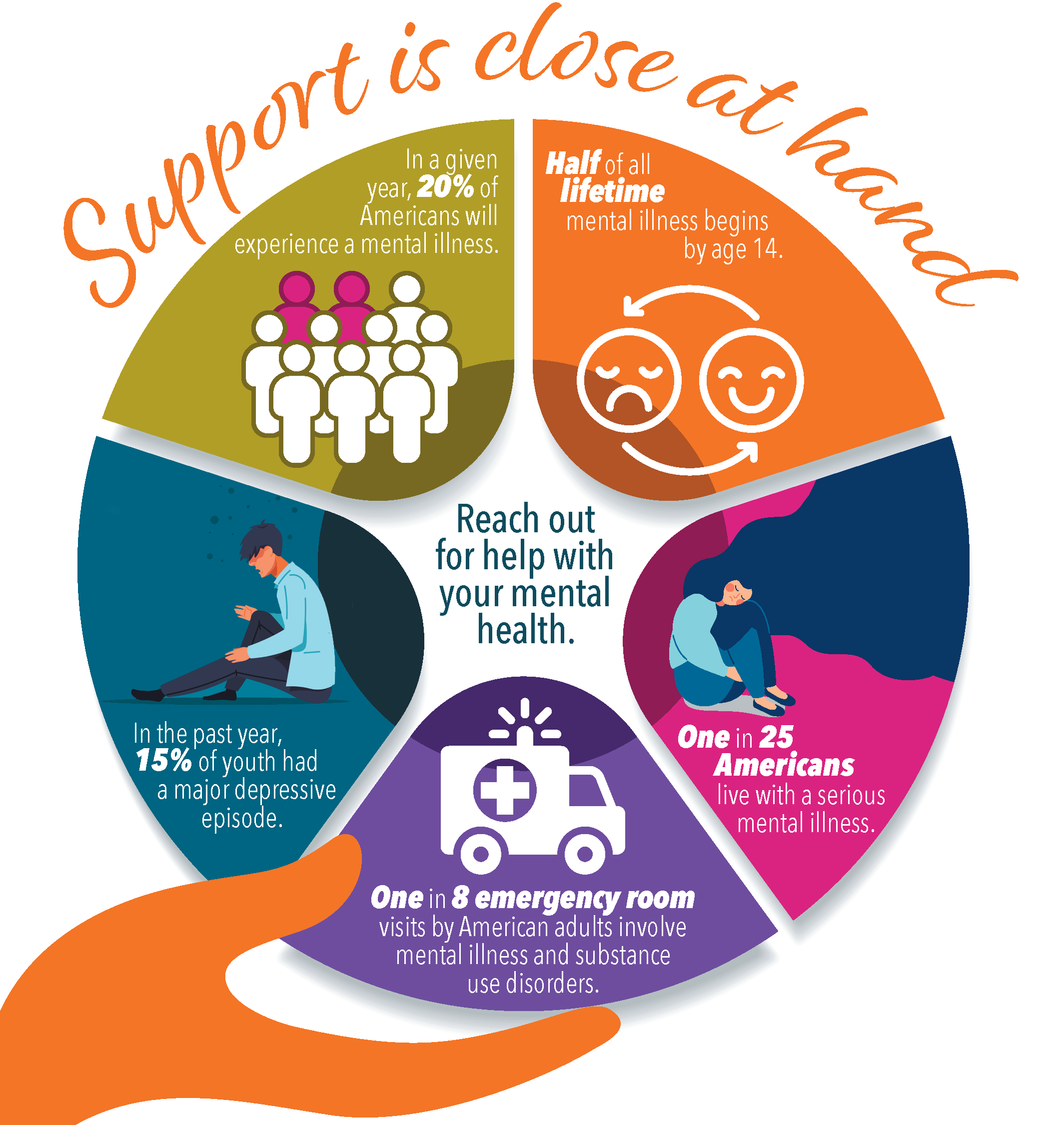Comprehensive Inpatient Mental Health Providers for Effective Treatment
Inpatient psychological health services stand for an important part of the healthcare system, supplying a structured and intensive environment for people experiencing extreme psychological distress. These solutions use a multidisciplinary method, incorporating numerous evidence-based therapies to attend to the intricate needs of clients. Nonetheless, the effectiveness of such extensive treatment expands beyond instant stablizing; it additionally encompasses the transition to outpatient support, an important stage frequently ignored. Exploring the nuances of this continuum exposes significant ramifications for both private recuperation and broader mental wellness outcomes. What elements genuinely influence this shift, and just how can we boost its efficiency?
Understanding Inpatient Mental Health Providers
Inpatient psychological health solutions supply vital support for people experiencing serious psychological distress that can not be taken care of successfully in an outpatient setting. These solutions are created to provide an extensive degree of care in an organized atmosphere, often within a hospital or specialized center. Clients confessed to inpatient programs commonly display intense signs, such as self-destructive ideation, severe clinical depression, or psychosis, requiring continuous tracking and intervention.
The admission procedure typically entails a detailed assessment by mental wellness experts, that assess the person's psychological state, background, and prompt requirements. As soon as admitted, individuals involve in a variety of healing modalities tailored to their details requirements, consisting of drug management, specific therapy, and group sessions. This alternative approach aims to support the person's condition, promote safety and security, and foster coping abilities.
Inpatient mental health and wellness solutions not just address immediate health worries yet also function as a bridge to recurring treatment. By providing a controlled atmosphere, these solutions assist in the growth of treatment strategies that can be proceeded in outpatient setups, thus making sure a continuum of treatment and boosting long-term outcomes for people with complicated psychological wellness demands.
Key Components of Effective Treatment
Efficient treatment in inpatient mental health and wellness services makes up a number of crucial parts that cultivate recuperation and stablizing. Firstly, a thorough assessment is necessary to determine the individual's particular needs and challenges. This evaluation notifies the development of a tailored therapy strategy, which acts as a roadmap for intervention.
Another essential element is the multidisciplinary group strategy. Partnership among psychiatrists, psycho therapists, registered nurses, and social workers ensures that numerous viewpoints contribute to the patient's treatment, improving the effectiveness of therapy. Evidence-based healing techniques, such as cognitive-behavioral therapy (CBT) and dialectical actions therapy (DBT), are also indispensable, offering structured strategies that deal with maladaptive idea patterns and behavior issues.

Lastly, an emphasis on aftercare preparation is important to guarantee a smooth shift to outpatient services, decreasing the danger of relapse and promoting lasting health. These collective parts produce an effective therapy structure within inpatient mental health solutions.
Benefits of Comprehensive Treatment

Thorough care in inpatient mental wellness services provides countless advantages that dramatically boost patient end results. One of the primary benefits is the holistic approach to therapy, resolving not only the emotional signs and symptoms but see additionally the physical, social, and psychological requirements of clients. This extensive assessment permits tailored treatments that advertise total well-being.
Another benefit is the combination of multidisciplinary teams, which promotes partnership amongst health care specialists. This joint setting ensures that patients receive coordinated care, reducing the risk of fragmented therapy and boosting interaction amongst caretakers. Comprehensive treatment assists in continuity of services, allowing for smooth shifts from inpatient to outpatient settings, which is essential for long-term recuperation.

Finally, the organized atmosphere of extensive inpatient care offers a safe space for patients to participate in healing tasks, assisting them establish coping strategies and resilience. Jointly, these advantages add to much more efficient treatment and boosted top quality of life for people experiencing mental health situations.
Evidence-Based Healing Techniques
In the realm of psychological wellness treatment, evidence-based therapeutic approaches play a critical function in making sure that clients receive reliable and clinically supported treatments. These methods integrate the ideal offered research with professional competence and client worths, promoting a tailored therapy experience that addresses specific requirements.
Cognitive Behavior Modification (CBT) is one of the most commonly identified evidence-based techniques, concentrating on recognizing and changing negative thought patterns and habits. This organized method has actually demonstrated efficiency in dealing with problems such as ptsd, stress and anxiety, and clinical depression. In A Similar Way, Dialectical Behavior Modification (DBT) is especially efficient for people with borderline individuality problem, stressing the development of emotional regulation and interpersonal effectiveness skills.
Additionally, medication management is frequently an essential element of evidence-based treatment, as psychotropic medications can reduce symptoms and improve total performance. Collective care models, which involve multidisciplinary groups, better boost the effectiveness of inpatient services by guaranteeing extensive assessments and continuous surveillance.
Inevitably, the combination of evidence-based restorative techniques not just advertises positive clinical end results however also empowers people, promoting a sense of firm and durability in their mental wellness journeys.
Transitioning to Outpatient Support
The change from inpatient mental health solutions to outpatient support notes an important phase in a patient's healing journey. This duration requires mindful planning and control to make sure continuity of treatment and to mitigate the threats of relapse or dilemma. Effective discharge preparation should start early in the inpatient stay, entailing a multidisciplinary team that consists of psychoanalysts, psychologists, registered nurses, and social workers.
Crucial element of an effective transition include the growth of a comprehensive aftercare plan customized to the person's specific demands. This strategy must outline follow-up consultations, drug management, and healing interventions, as well as determine area resources and assistance groups that can assist in continuous healing.
In addition, person and family members education and learning is vital during this phase. Recognizing the indications of potential obstacles and the importance of adhering to therapy can encourage people and their support systems.
Routine follow-up and reassessment of the outpatient strategy are vital to deal with progressing obstacles. top article By cultivating a joint relationship between inpatient and outpatient carriers, the likelihood of sustained recovery increases, ultimately boosting the client's quality of life and decreasing the threat of readmission.

Conclusion
In recap, comprehensive inpatient mental wellness services provide a crucial framework for attending to extreme psychological distress with a multidisciplinary strategy. By integrating evidence-based therapies, promoting an organized setting, and promoting household involvement, these solutions boost therapy effectiveness. The emphasis on stability and the advancement of dealing abilities not just aids in immediate healing however likewise promotes a smoother transition to outpatient care. Ultimately, such extensive care is crucial for lasting psychological wellness and health.
The admission procedure generally entails a thorough analysis by psychological health and wellness professionals, who review the person's psychological state, history, and immediate needs.Reliable therapy in inpatient mental health and wellness services hop over to these guys comprises numerous vital elements that promote recovery and stablizing.Detailed care in inpatient mental wellness services offers numerous advantages that substantially enhance person results.The transition from inpatient psychological health and wellness services to outpatient assistance marks a crucial stage in an individual's recovery trip.In summary, thorough inpatient mental health solutions offer a crucial structure for addressing extreme psychological distress via a multidisciplinary method.